Nori Human PCNA ELISA Kit
$461.00 – $832.00
This ELISA kit is for quantification of PCNA in human. This is a quick ELISA assay that reduces time to 50% compared to the conventional method, and the entire assay only takes 3 hours. This assay employs the quantitative sandwich enzyme immunoassay technique and uses biotin-streptavidin chemistry to improve the performance of the assays. An antibody specific for PCNA has been pre-coated onto a microplate. Standards and samples are pipetted into the wells and any PCNA present is bound by the immobilized antibody. After washing away any unbound substances, a detection antibody specific for PCNA is added to the wells. Following wash to remove any unbound antibody reagent, a detection reagent is added. After intensive wash a substrate solution is added to the wells and color develops in proportion to the amount of PCNA bound in the initial step. The color development is stopped, and the intensity of the color is measured.
Alternative names for PCNA: Proliferating cell nuclear antigen
This product is for Laboratory Research Use Only not for diagnostic and therapeutic purposes or any other purposes.
- Description
- How Elisa Works
- Product Citation (0)
- Reviews (0)
Description
Nori Human PCNA ELISA Kit Summary
Alternative names for PCNA: Proliferating cell nuclear antigen
| Assay Type | Solid Phase Sandwich ELISA |
| Format | 96-well Microplate or 96-Well Strip Microplate |
| Method of Detection | Colorimetric |
| Number of Targets Detected | 1 |
| Target Antiben Accession Number | P12004 |
| Assay Length | 3 hours |
| Quantitative/Semiquantitative | Quantitative |
| Sample Type | Plasma, Serum, Cell Culture, Urine, Cell/Tissue Lysates, Synovial Fluid, BAL, |
| Recommended Sample Dilution (Plasma/Serum) | No dilution for sample <ULOQ; sufficient dilution for samples >ULOQ |
| Sensitivity | 250 pg/mL |
| Detection Range | 1.25-80 ng/mL |
| Specificity | Human PCNA |
| Cross-Reactivity | < 0.5% cross-reactivity observed with available related molecules, < 50% cross-species reactivity observed with species tested. |
| Interference | No significant interference observed with available related molecules |
| Storage/Stability | 4 ºC for up to 6 months |
| Usage | For Laboratory Research Use Only. Not for diagnostic or therapeutic use. |
| Additional Notes | The kit allows for use in multiple experiments. |
Standard Curve
Kit Components
1. Pre-coated 96-well Microplate
2. Biotinylated Detection Antibody
3. Streptavidin-HRP Conjugate
4. Lyophilized Standards
5. TMB One-Step Substrate
6. Stop Solution
7. 20 x PBS
8. Assay Buffer
Other Materials Required but not Provided:
1. Microplate Reader capable of measuring absorption at 450 nm
2. Log-log graph paper or computer and software for ELISA data analysis
3. Precision pipettes (1-1000 µl)
4. Multi-channel pipettes (300 µl)
5. Distilled or deionized water
Protocol Outline
1. Prepare all reagents, samples and standards as instructed in the datasheet.
2. Add 100 µl of Standard or samples to each well and incubate 1 h at RT.
3. Add 100 µl of Working Detection Antibody to each well and incubate 1 h at RT.
4. Add 100 µl of Working Streptavidin-HRP to each well and incubate 20 min at RT.
5. Add 100 µl of Substrate to each well and incubate 5-30 min at RT.
6. Add 50 µl of Stop Solution to each well and read at 450 nm immediately.
Background:
Proliferating cell nuclear antigen (PCNA) is a DNA clamp that acts as a processivity factor for DNA polymerase δ in eukaryotic cells and is essential for replication. PCNA is a homotrimer and achieves its processivity by encircling the DNA, where it acts as a scaffold to recruit proteins involved in DNA replication, DNA repair, chromatin remodeling and epigenetics.[1] PCNA is a cofactor of DNA polymerase delta and acts as a homotrimer and helps increase the processivity of leading strand synthesis during DNA replication. In response to DNA damage, this protein is ubiquitinated and is involved in the RAD6-dependent DNA repair pathway. PCNA was originally identified as an antigen that is expressed in the nuclei of cells during the DNA synthesis phase of the cell cycle.[2] PCNA helps hold DNA polymerase epsilon (Pol ε) to DNA. PCNA is clamped[3] to DNA through the action of replication factor C(RFC),[4] which is a heteropentameric member of the AAA+ class of ATPases. Expression of PCNA is under the control of E2F transcription factor-containing complexes.[5] Since DNA polymerase epsilon is involved in resynthesis of excised damaged DNA strands during DNA repair, PCNA is important for both DNA synthesis and DNA repair.[6][7] Many proteins interact with PCNA via the two known PCNA-interacting motifs PCNA-interacting peptide (PIP) box and AlkB homologue 2 PCNA interacting motif (APIM).[8] Proteins binding to PCNA via the PIP-box are mainly involved in DNA replication whereas proteins binding to PCNA via APIM are mainly important in the context of genotoxic stress.[9]
References
- Moldovan GL, Pfander B, Jentsch S (2007). Cell. 129 (4): 665–79.
- Leonardi E, et al. (1992). J. Clin. Pathol. 45 (5): 416–419.
- Bowman GD, O’Donnell M, Kuriyan J (2004). Nature. 429 (6993): 724–730.
- Zhang G, et al. (1999). Proc. Natl. Acad. Sci. U.S.A. 96 (5): 1869–1874.
- Egelkrout EM, et al. (2002). Plant Cell. 14 (12): 3225–3236.
- Shivji KK, Kenny MK, Wood RD (1992). Cell. 69 (2): 367–74.
- Essers J, et al. (2005). Mol. Cell. Biol. 25 (21): 9350–9359.
- Gilljam KM, et al. (2009) The Journal of Cell Biology. 186 (5): 645–54.
- Mailand N, et al. (2013). Nature Reviews. Molecular Cell Biology. 14 (5): 269–82.
Be the first to review “Nori Human PCNA ELISA Kit”
You must be logged in to post a review.























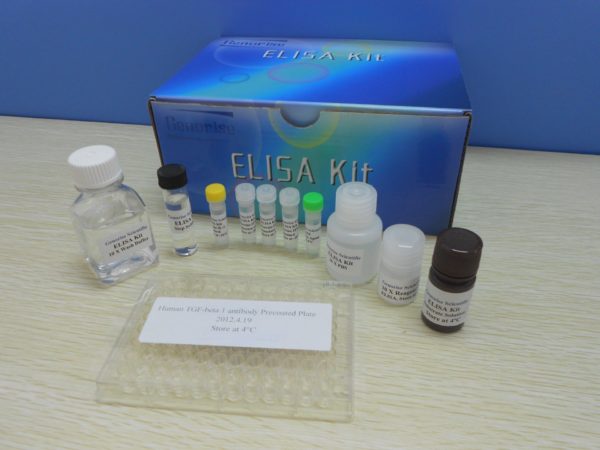
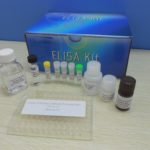
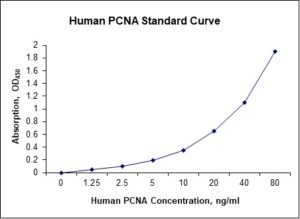
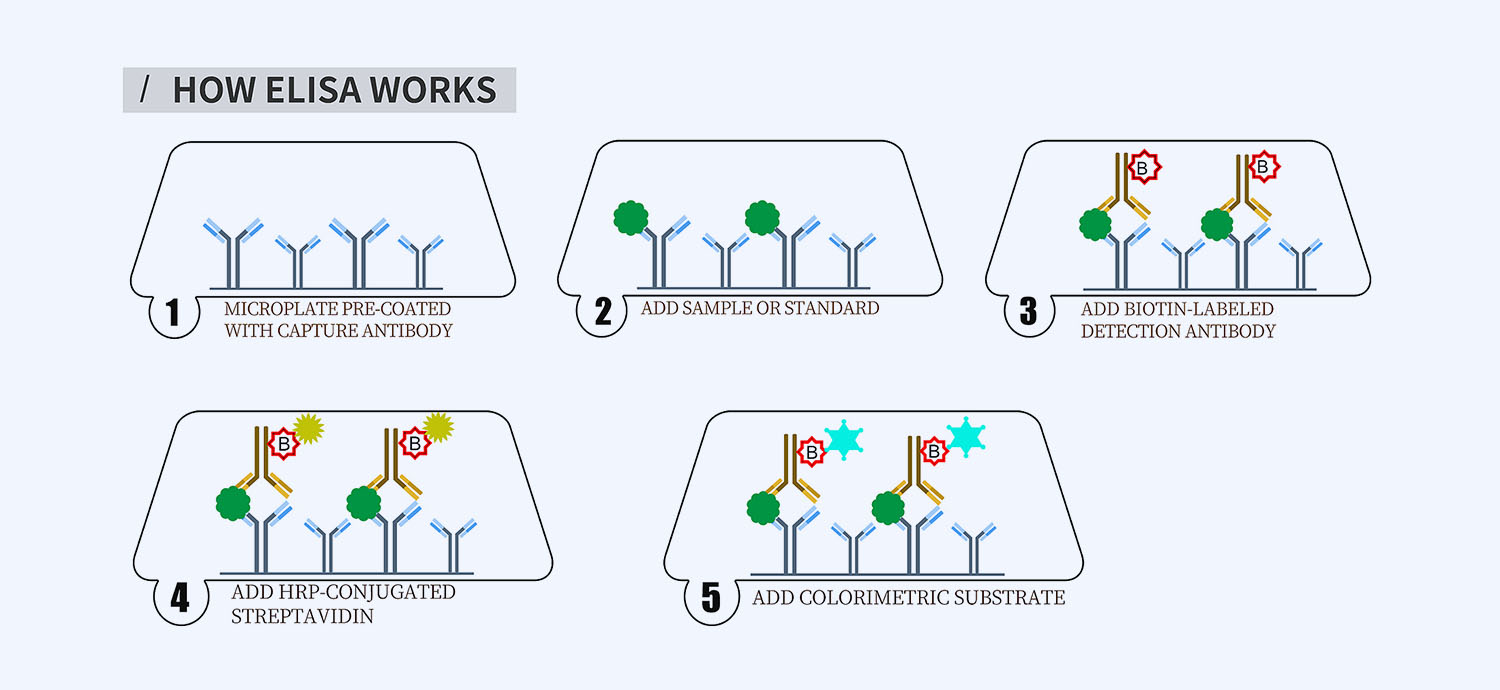
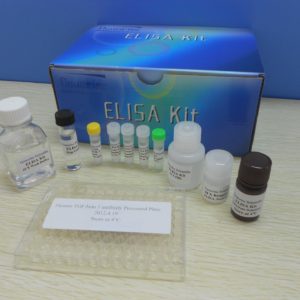
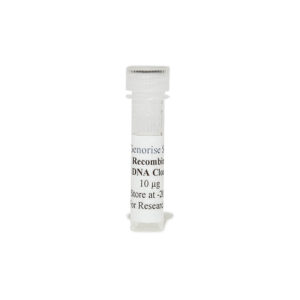
Reviews
There are no reviews yet.